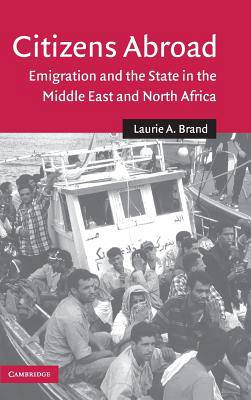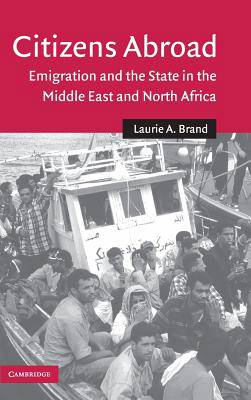
- Afhalen na 1 uur in een winkel met voorraad
- Gratis thuislevering in België vanaf € 30
- Ruim aanbod met 7 miljoen producten
- Afhalen na 1 uur in een winkel met voorraad
- Gratis thuislevering in België vanaf € 30
- Ruim aanbod met 7 miljoen producten
Zoeken
€ 219,45
+ 438 punten
Uitvoering
Omschrijving
Despite the fact that the majority of emigration today originates in the global south, most research has focused on the receiving states of Europe and North America, while very little attention has been paid to the policies of the sending states toward emigration or toward their nationals abroad. Taking the country cases of Morocco, Tunisia, Lebanon and Jordan, this work explores the relationship between the government of the sending states, the outmovement of their citizens and the communities of expatriates that have developed. By focusing on the evolution of government institutions charged with various aspects of expatriate affairs, this work breaks new ground in understanding the changing nature of the relationship between expatriates and their home state. Far from suggesting that the state is waning in importance, the conclusions indicate that this relationship provides evidence both of state resilience and of new trends in the practice of sovereignty.
Specificaties
Betrokkenen
- Auteur(s):
- Uitgeverij:
Inhoud
- Aantal bladzijden:
- 264
- Taal:
- Engels
- Reeks:
- Reeksnummer:
- nr. 23
Eigenschappen
- Productcode (EAN):
- 9780521858052
- Verschijningsdatum:
- 27/02/2006
- Uitvoering:
- Hardcover
- Formaat:
- Ongenaaid / garenloos gebonden
- Afmetingen:
- 161 mm x 229 mm
- Gewicht:
- 566 g

Alleen bij Standaard Boekhandel
+ 438 punten op je klantenkaart van Standaard Boekhandel
Beoordelingen
We publiceren alleen reviews die voldoen aan de voorwaarden voor reviews. Bekijk onze voorwaarden voor reviews.











